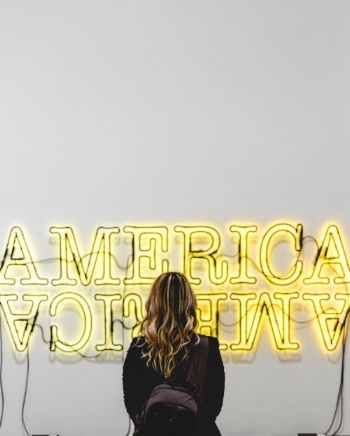On Writing Since "The Election"
- Stephanie Vessely
- Sep 8, 2018
- 3 min read

In his essay “On Becoming an American Writer,” from the collection How To Write an Autobiographical Novel, Alexander Chee writes about being a writer in our current climate, “after the election, the election that for now we all speak of only as ‘the election’ as if there will never be any other.” Setting aside my fear that, based on current events, there actually won’t be another election, reading Chee, I felt relieved. I thought, oh good, we are writing about this now—this being “the election,” this being what it means to be alive—and to try to make art—in this crazy, disorienting, devastating time.
In some ways it feels indulgent to focus on my work right now. There are more pressing concerns than whether I will ever turn my thesis into a publishable book. As of this writing, nearly 500 children are still separated from their parents at the border. Our president is doing everything in his power to kill democracy, and our system of checks and balances is neither checking or balancing him. This summer, there were more days than not when I kept my windows closed because of the smoke from the wildfires. I could write an entire book listing the injustices and outrages occurring at a breakneck speed every day.
Writing in this current feels selfish. How do we care about art when every day feels like living triage? If the entire world is up in flames, me sitting down to type at my laptop isn’t the solution. I need to grab some water, get people and animals out of the way, and rebuild when it’s over. There is no longer time for my fanciful notions of quitting my corporate job some day and becoming a full-time writer. The world is on fire. We need to save it.
In his essay, Chee writes about the people in New York who had a hard time writing after 9/11. “It seemed to me,” he says, “they were frozen by writing for that audience, by writing for the missing. Who we all felt, somehow, were watching. Waiting to see if we were worthy of being alive when they were dead. Waiting to see the stories we would tell about the life they would no longer have among us—waiting to see if it was worth it.”
These times feel similar. They are high stakes. If I’m going to open my laptop and start forming sentences I better have something important to say and it better be good. My writing should change something or make something better. It should detract from all of the the noise, not add to it. And it needs to be worthy of the time it takes away from actually doing something—like helping those kids at the border or fighting climate change. If it doesn’t, then why bother?
What I hear Chee saying is that writing is doing something. We don’t know the effect our words will have on others. “You may think it is humility to imagine your work doesn’t matter,” he writes. “It isn’t. Much the way you don’t know what a writer will go on to write, you don’t know what a reader, having read you, will do.”
Chee’s essay reminded me that this isn’t the time for my bullshit, or for feeling sad and helpless. Or we can feel those things, but the point is to move beyond them. Chee lost a friend to cancer in 2002 and another friend to AIDS in 2003. Both wanted to be writers. In the aftermath of their deaths Chee thought about “how you could wait too long to write.”
The problem of writing in our current climate, says Chee, “can be not just who is listening, but who is not listening. Who will never listen. The point of writing in the face of the problem…is in the possibility of being read by someone who could read it. Who could be changed.”
“If you are reading this,” Chee writes, “and you’re a writer, and you, like me, are gripped with despair, when you think you might stop: Speak to your dead. Write for your dead. Tell them a story. What are you doing with this life? Let them hold you accountable.”
We are here. We are still alive. And silence has never put out the fire.




Comments